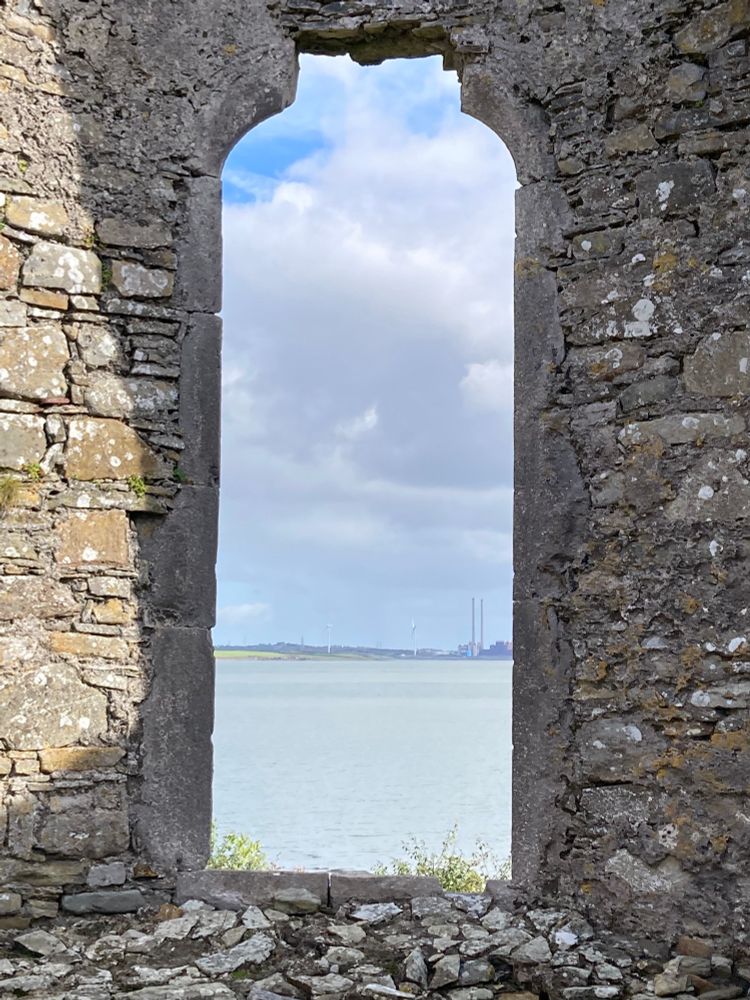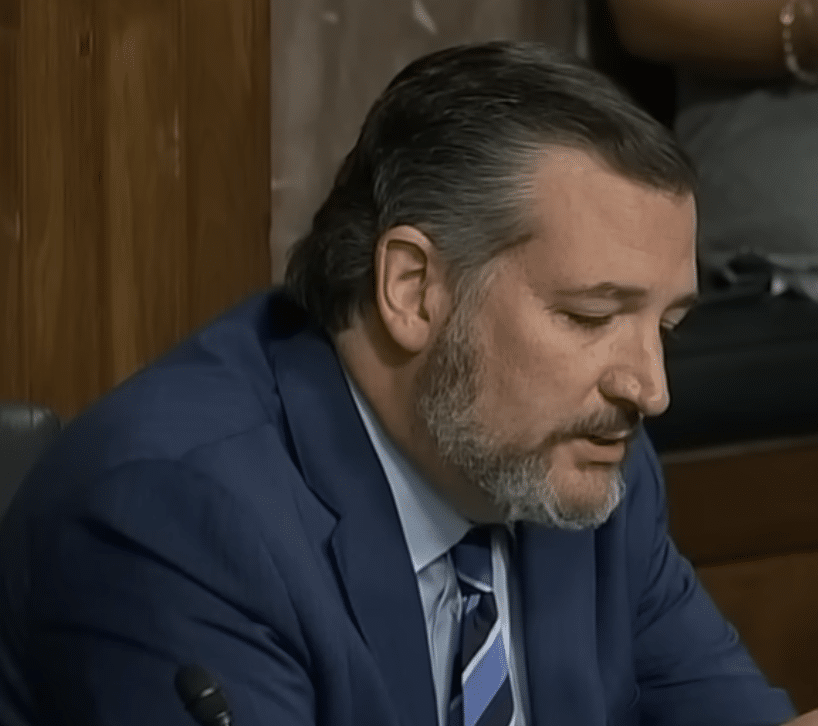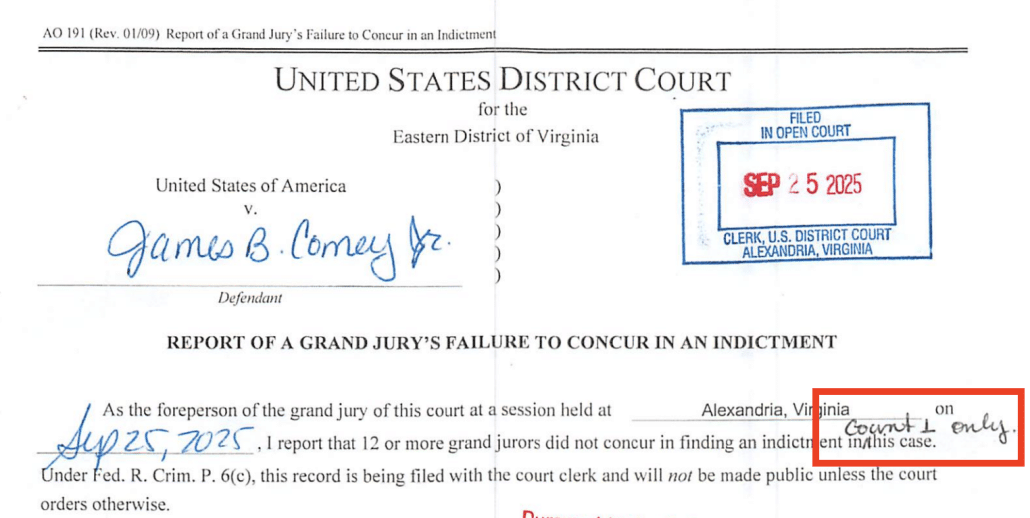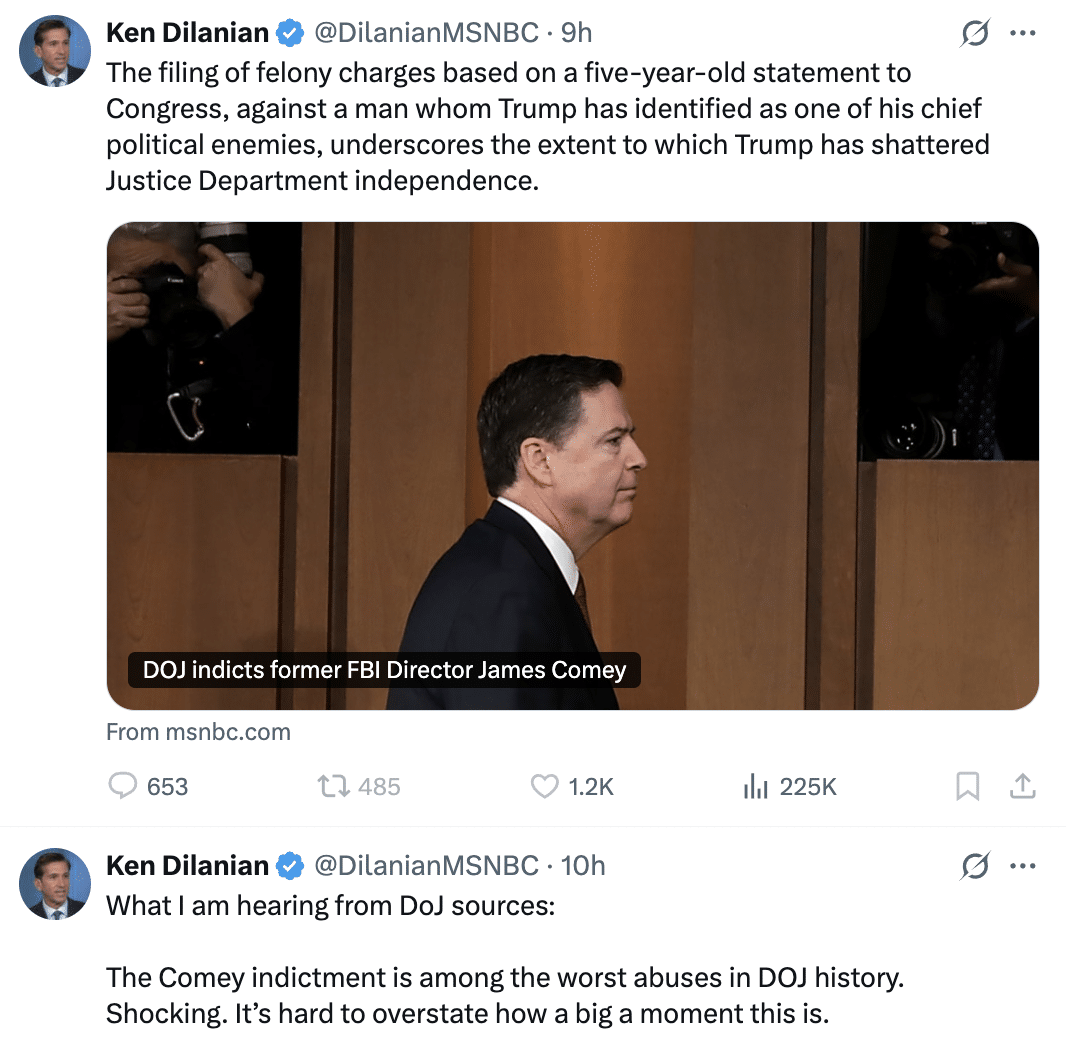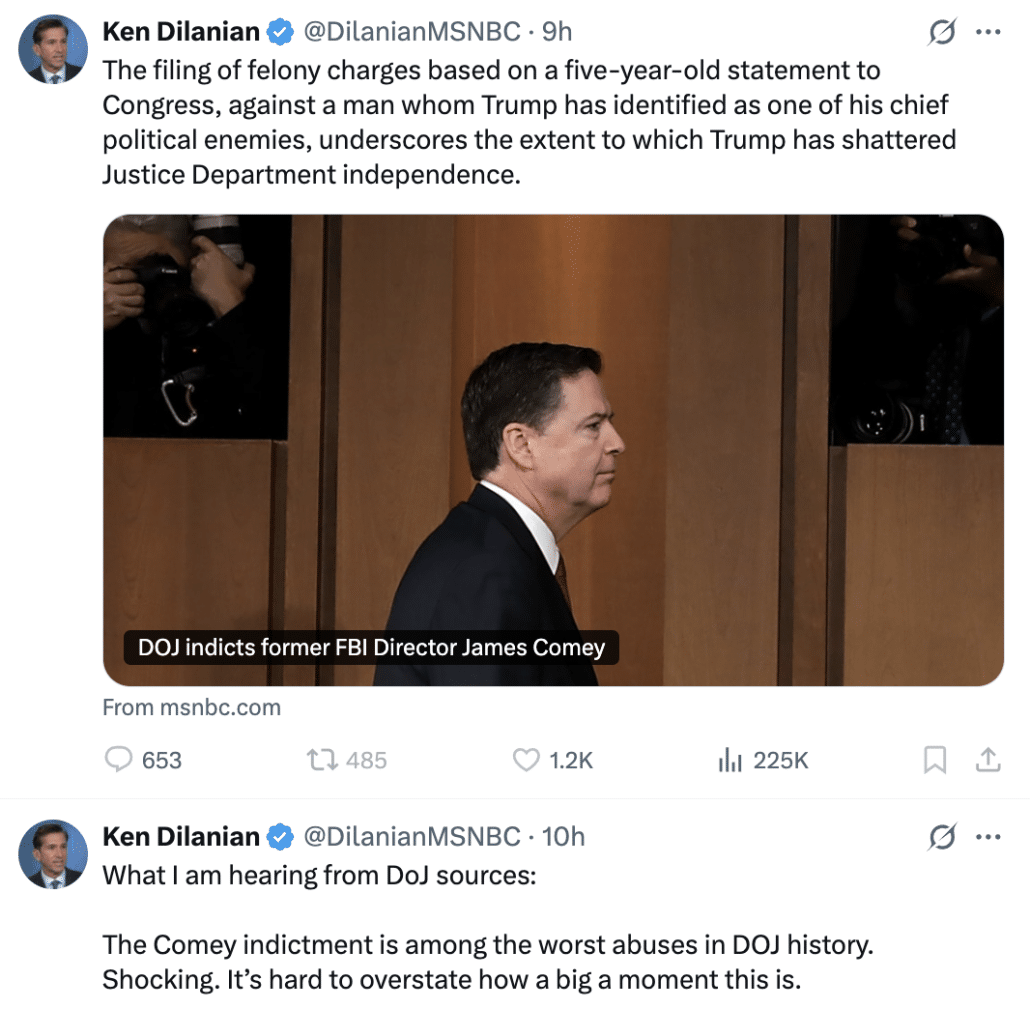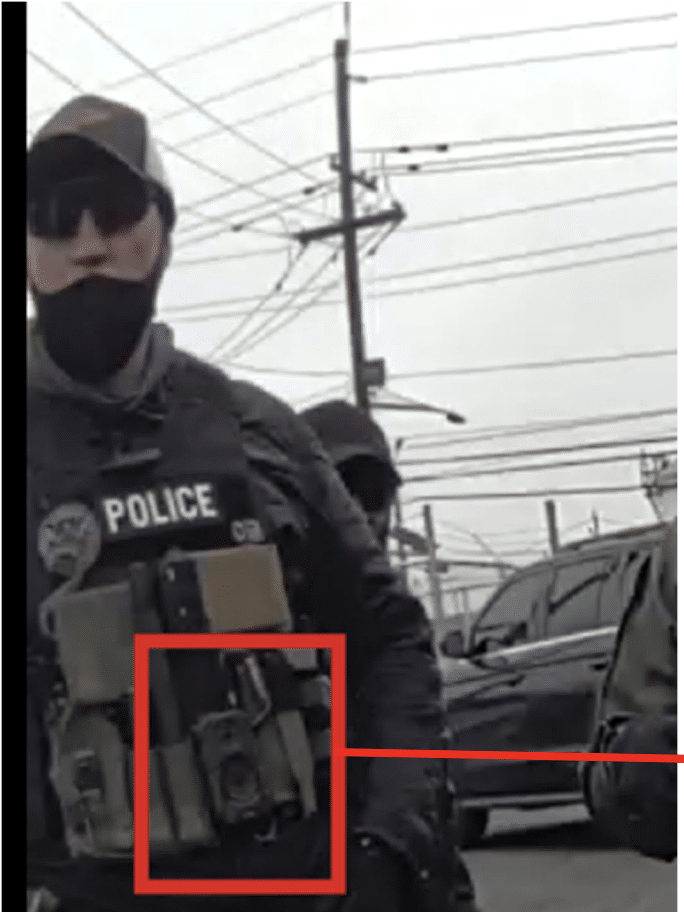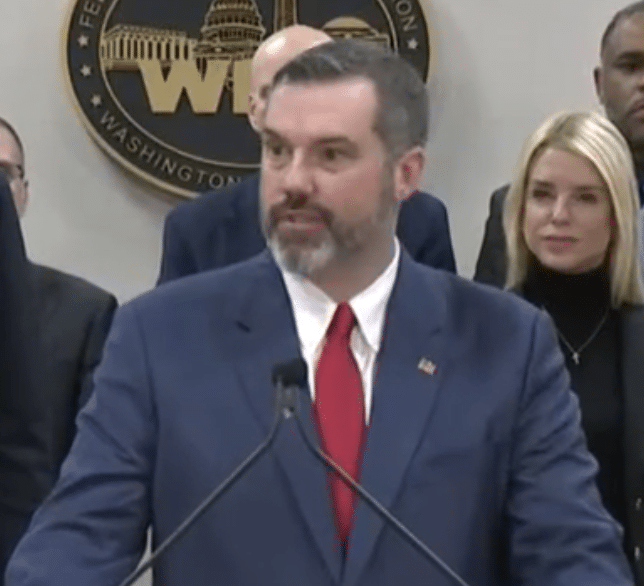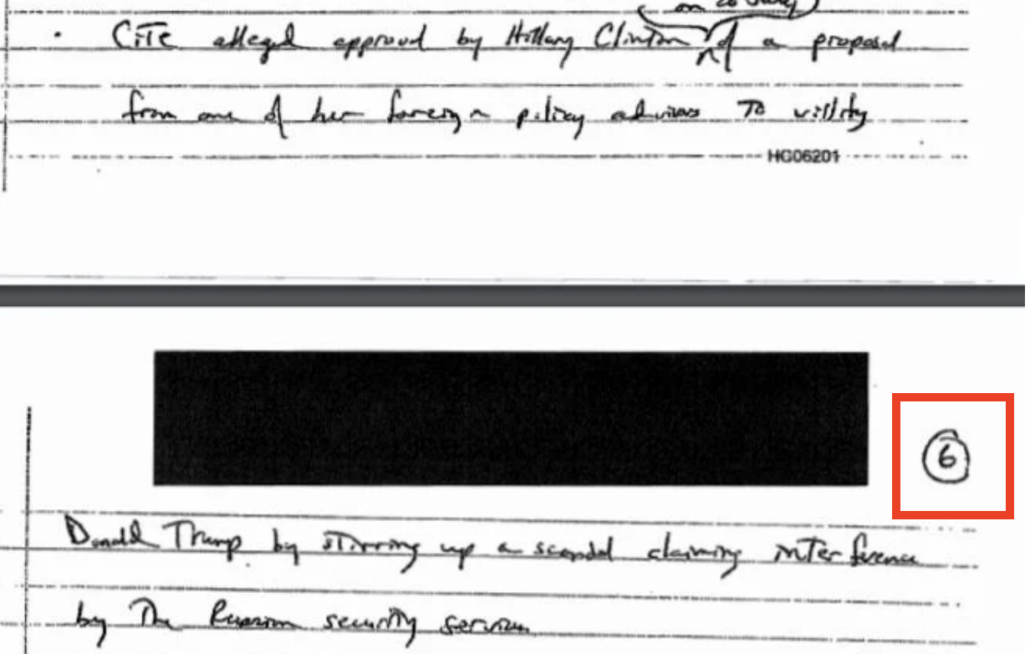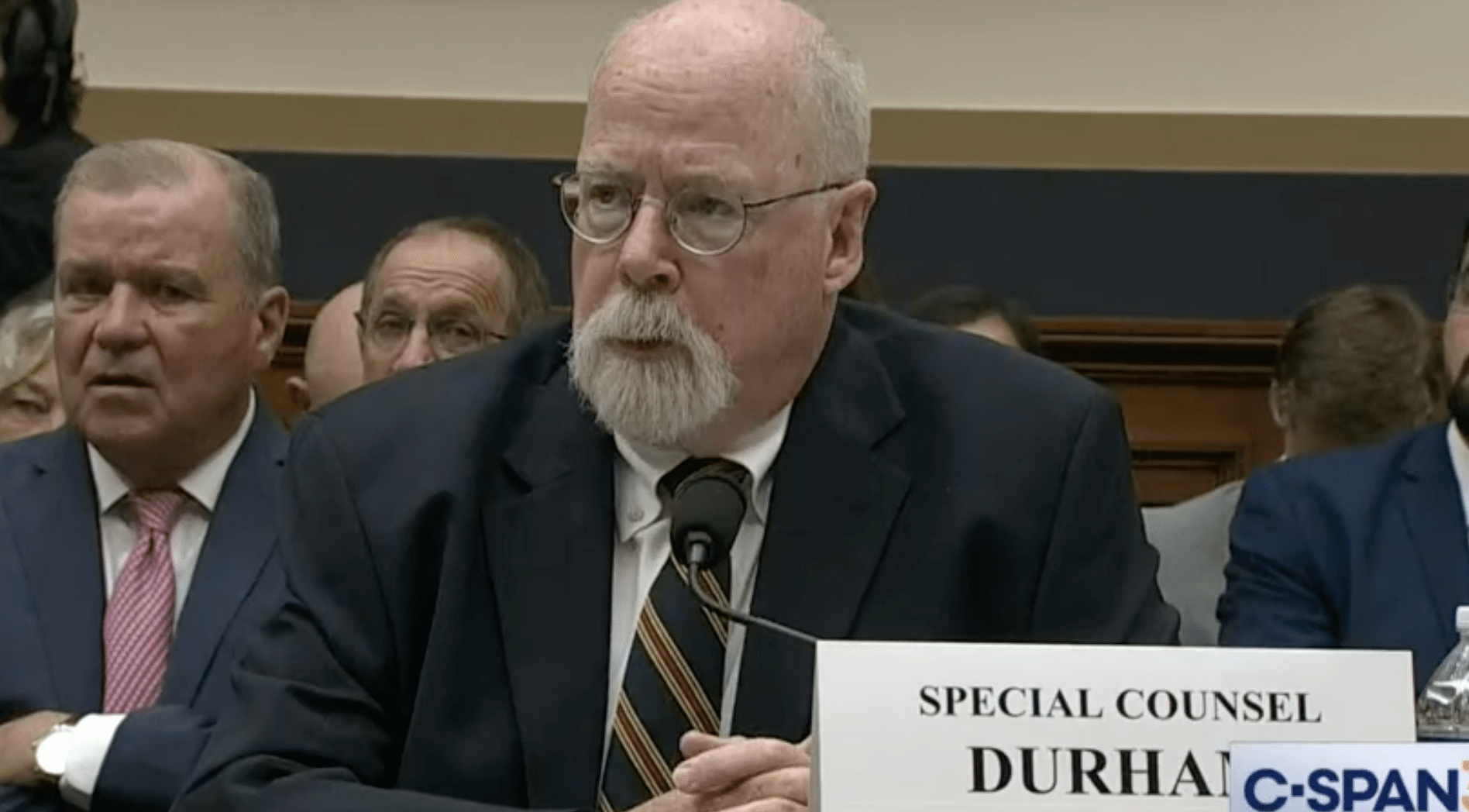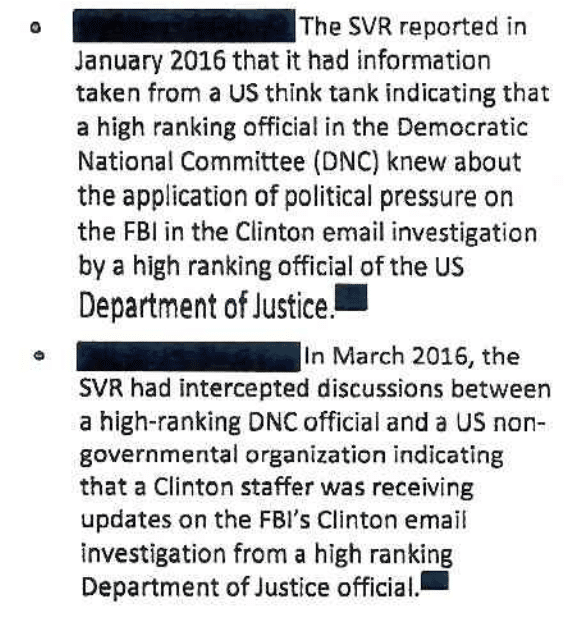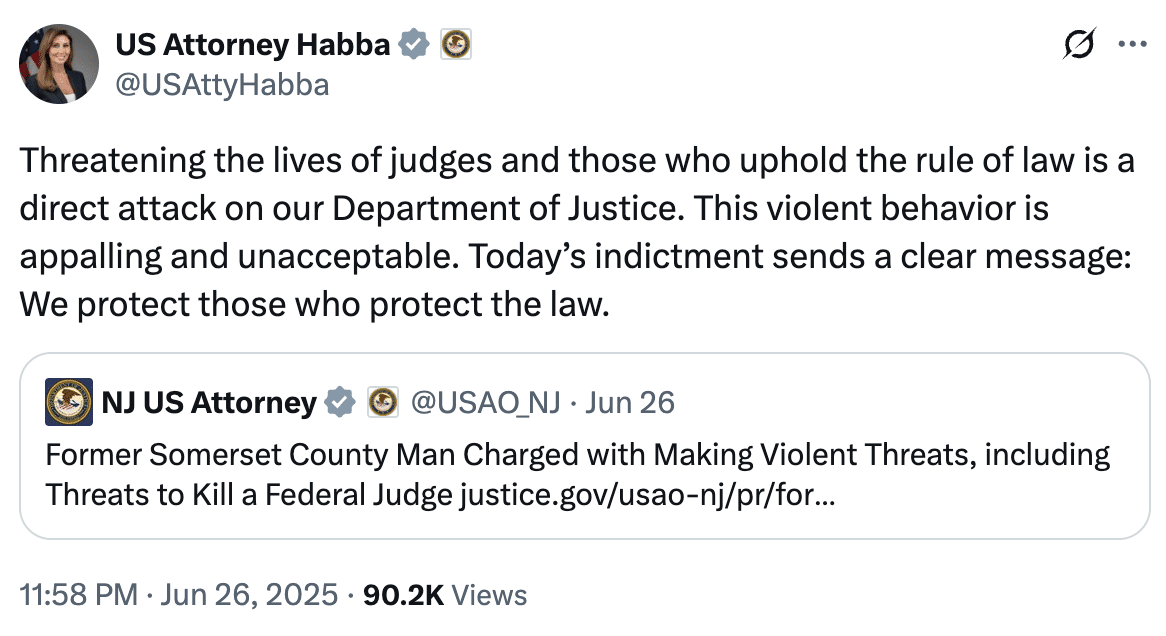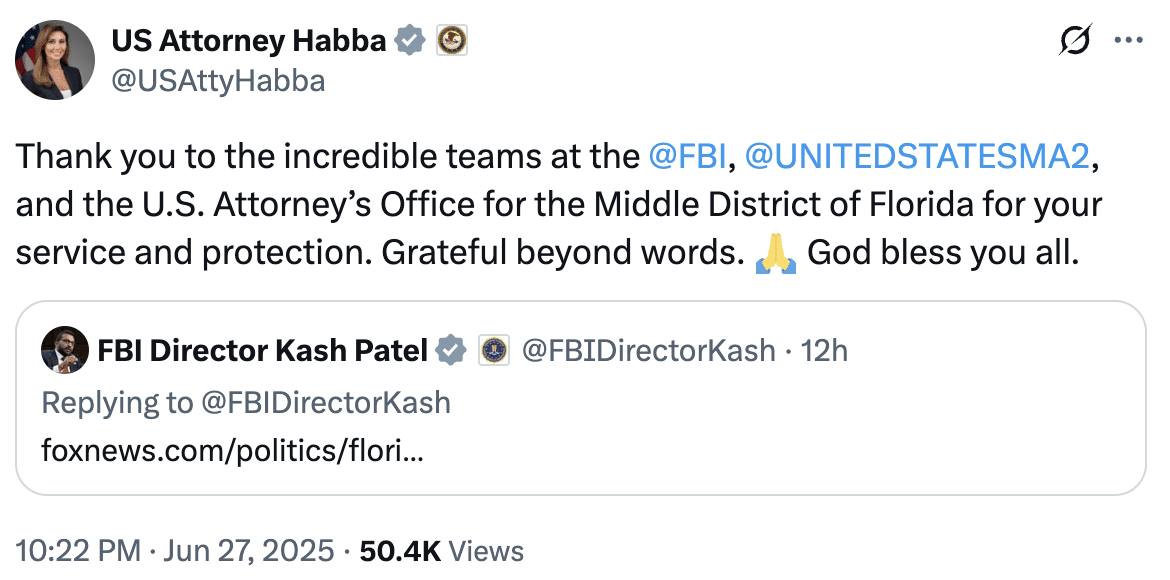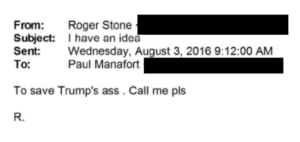Will Jim Comey’s Prosecution Prove Kash Patel Lied to Senate Judiciary Committee?
As I mentioned here, ABC reported that the lie charged in the Jim Comey indictment pertains to whether he authorized Dan Richman to share information anonymously, not whether he authorized Andrew McCabe to do so.
Sources told ABC News that “PERSON 1” is Clinton and “PERSON 3” is Richman, a longtime law professor who — as ABC News previously reported — met with federal prosecutors last week after being subpoenaed in the matter.
Charlie Savage has the best piece on the likely theory of the indictment. I’d like to expand on that to explain why I think it more likely we’ll obtain proof that Kash Patel lied to Congress as a result of this prosecution than that Jim Comey did.
As you read the following remember that Kash assured the Senate Judiciary Committee — including in this exchange with Mazie Hirono — that he would not “go[] backwards” to investigate Jim Comey.
Senator Hirono (02:18:49):
Do you plan to investigate James Comey, who’s on your list?
Kash Patel (02:18:54):
I have no intentions of going backwards-
Except it appears that Kash did precisely that.
The indictment appears to accuse Comey of authorizing Dan Richman to serve as a source for this article on the Hillary and Trump investigations, especially this passage about the SVR document purporting to report that Loretta Lynch had told Amanda Renteria she would intervene to protect Hillary (the charge the grand jury rejected was also focused on these SVR documents, which I explained here).
During Russia’s hacking campaign against the United States, intelligence agencies could peer, at times, into Russian networks and see what had been taken. Early last year, F.B.I. agents received a batch of hacked documents, and one caught their attention.
The document, which has been described as both a memo and an email, was written by a Democratic operative who expressed confidence that Ms. Lynch would keep the Clinton investigation from going too far, according to several former officials familiar with the document.
Read one way, it was standard Washington political chatter. Read another way, it suggested that a political operative might have insight into Ms. Lynch’s thinking.
Normally, when the F.B.I. recommends closing a case, the Justice Department agrees and nobody says anything. The consensus in both places was that the typical procedure would not suffice in this instance, but who would be the spokesman?
The document complicated that calculation, according to officials. If Ms. Lynch announced that the case was closed, and Russia leaked the document, Mr. Comey believed it would raise doubts about the independence of the investigation.
[snip]
But some time after that meeting, Mr. Comey began talking to his advisers about announcing the end of the Clinton investigation himself, according to a former official.
“When you looked at the totality of the situation, we were leaning toward: This is something that makes sense to be done alone,” said Mr. Steinbach, who would not confirm the existence of the Russian document.
Former Justice Department officials are deeply skeptical of this account. If Mr. Comey believed that Ms. Lynch were compromised, they say, why did he not seek her recusal? Mr. Comey never raised this issue with Ms. Lynch or the deputy attorney general, Sally Q. Yates, former officials said.
Importantly, Richman was a named source for the story, which will make it hard to prove that Comey authorized Richman to serve as an anonymous source. (Hilariously, Pat Fitzgerald’s meticulous mapping during the Scooter Libby trial of the difference between an “anonymous” source and a “background” source might, by itself, defeat this case.)
As part of an investigation into the sources for this story (which targeted Jim Baker closely), John Durham seems to have discovered either details of how the FBI authorized people to weigh in on stories or that Dan Richman served as a cut-out for Comey, I’m not sure which.
The reopened Arctic Haze investigation was biased against Comey
That discovery led DOJ to reopen a bunch of investigations into 2017 stories pertaining to the Russian investigation, documented in these filings, which I wrote up here.
As part of that, DOJ investigated whether Richman was the source for the SVR details in the April 2017 NYT story. Before closing the investigation, DOJ asked Comey for the phone he used at the time, and found nothing relevant.
[redacted] on June 29, 2021, Comey provided consent, via his counsel, for the FBI to conduct a limited search of his Apple iPhone. The FBI conducted a forensic examination of the telephone. The examination indicated the telephone contained four voicemail messages, four instant messages, two email messages, and 51 images from December 1, 2016 to May 1, 2017. None of this material contained information relevant to this investigation.
They also interviewed Richman, who among other things, told the FBI that, “Comey never asked him to talk to the media” (though it appears earlier, as described in redacted passages, he may have said Comey did).
The substance of the November 2019 Richman interview confirmed that Comey had told Richman bits about the SVR documents, but that when Mike Schmidt came to Richman and asked him about it in January 2017, Schmidt already knew more about the documents than Richman did.
On November 22, 2019, the Arctic Haze investigative team interviewed Richman. According to Richman, Comey and Richman talked about the “hammering” Comey was taking from the media concerning his handling of the Midyear Exam investigation. Richman opined Comey took comfort in the fact Richman had talked to the press about his feelings regarding Comey’s handling and decision-making on the Midyear Exam investigation. Richman claimed Comey never asked him to talk to the media.
According to Richman, he and Comey had a private conversation in Comey’s office in January 2017. The conversation pertained to Comey’s decision to make a public statement on the Midyear Exam investigation. Comey told Richman the tarmac meeting between Lynch and Clinton was not the only reason which played into Comey’s statement on the Midyear Exam investigation. According to Richman, Comey told Richman of Lynch’s characterization of the investigation as a “matter” and not that of an investigation. Richman recalled Comey told him there was some weird classified material related to Lynch which came to the FBI’s attention. Comey did not fully explain the details of the information. Comey told Richman about the Classified Information, including the source of the information. Richman understood the information could be used to suggest Lynch might not be impartial with regards of the conclusion of the Midyear Exam investigation. Richman understood the information about Lynch was highly classified and it should be protected. Richman was an SGE at the time of the meeting.
According to Richman, he and Schmidt had a conversation shortly after the meeting with Comey in or around January 2017. Richman claimed Schmidt brought up the Classified Information and knew more about it than he did. Richman was pretty sure he did not confirm the Classified Information. However, Richman told the interviewing agents he was sure “with a discount” that he did not tell Schmidt about the Classified Information. Richman did not know who gave Schmidt the Classified Information. Richman acknowledged he had many discussions with Schmidt about the article as an SGE and even after he resigned as an SGE. Richman acknowledged he contributed more to the article than what was attributed to him by name. Richman also stated he knew Schmidt talked to numerous other government sources for information on the article. [my emphasis]
DOJ ultimately decided they couldn’t charge either Comey or Richman, because even if Richman were a source, he would be a confirmatory source, which DOJ had never charged (they claim, though I think that’s incorrect).
They did some more interviews but — and this may sink EDVA’s case even if everything else doesn’t — they only interviewed people who would have a motive to protect Comey, not those with a motive to slam him.
After discussing the status of investigative leads and resources available with the U.S. Attorney’s Office and Department of Justice’s National Security Division (DOJ NSD), the FBI investigative team was directed to interview only those officials who might have had a motive to protect Comey. Therefore, the FBI only interviewed eight of these officials who consisted mainly of former FBI officials. All of these officials denied providing the Classified Information to the New York Times. [my emphasis]
At a time when they could have charged this, Bill Barr’s DOJ assumed that the original detailed sources for the SVR story must be Comey allies.
There are at least two reasons why that was a dumb theory.
First, as the DOJ IG Report on this that investigators read — but didn’t explain in the unredacted parts of the case file — Comey and people around him believed the claims in the document were “objectively false” Comey even alluded as such in his 2018 OGR testimony (also cited in this closing document) — which Kash Patel would know personally. “So far as I knew at the time, and still think, the material itself was genuine, which is a separate question, though, from whether it was what it said was accurate.”
This entire passage is premised on the document being true.
More importantly, the sources for it are pissed off that Jim Comey announced the end of the Hillary investigation himself.
Plus, there’s no mention that one of these two SVR documents said that Jim Comey was going to throw the election for the Republicans. If someone were really familiar with the documents themselves, rather than just discussions of them, you’d expect they would suggest that maybe Comey was overcompensating out of worry that he would be deemed partial to Republicans.
The blind spot about that part of the SVR documents, notably, is replicated in the HPSCI document on which Kash was the original author.
HPSCI simply leaves out the Jim Comey allegation in one of the SVR reports, which if true, would explain why Putin wouldn’t have to (and didn’t) dump damning intel close to the election: Because Putin believed that “Comey is leaning more to the [R]epublicans, and most likely he will be dragging this investigation until the presidential elections,” something that turned out to be true. In other words, they cherry pick which Russian spy products they choose to parrot, one of the sins they accuse the ICA team of, but they do so with years of hindsight that made clear how foolish that was.
The entire right wing, including the current FBI Director, have vast blindspots about these documents (Kash even seems to believe they’re not fabricated!!). And those blindspots appear to have been replicated in the investigative choices for that investigation. That means the selective prosecution of this prosecution is built on top of the selective investigation of the Richman investigation.
Nevertheless, the investigation was closed without charging Richman for confirming classified details.
Kash did look backward
Where this becomes proof that Kash lied to the Senate Judiciary Committee, claiming that “I have no intentions of going backwards” to investigate Comey is that there’s no reason to reexamine the issue (except that Comey answered a question focused on Andrew McCabe on which the statute of limitations has not yet expired).
The leak itself, if it could be pinned on Comey and Richman, could not be charged. Bill Barr did not reopen the investigation after seeing Comey’s September 2020 testimony, even though he remained busy trying to discredit Crossfire Hurricane.
While investigators this time around are chasing a parallel theory that the FBI covered up their focus on SVR documents that only exists in the fevered imaginations of people like Kash (that is, if Comey actually lied about any of this it would be material to their fevered conspiracy theories in the other part of the investigation), it would not have been material at the time, because Ted Cruz was seeking a gotcha about his fevered imagined conflict between McCabe and Comey’s testimony. The underlying 2017 question from Grassley incorporated Richman, but if Cruz’s did, there’s no hint of that. He explicitly focused on McCabe.
Nor would it be material to the Durham investigation. The Durham Report actually says that Comey refused to be interviewed, pointing instead to testimony just like this. So if there’s something in this exchange that would be usable, Durham didn’t do so.
Nevertheless, somehow, the FBI decided to go revisit this gotcha question from five years ago, which — even if Comey were lying — would not change the public understanding of Comey’s self-righteous justifications for his decisions in the Clinton investigation one bit. Outside the fevered imagination of people like Kash, or the decision to look backward to investigate a guy listed on your enemies list, there’s no reason you get to these files.
Now, Comey may have opportunity to ask Kash, under oath, how the FBI decided to go unpack the closing file for an investigation closed over three years earlier — which is why I say we may get proof that Kash lied to SJC.
But the only new information that I could conceive of that would lead the FBI to reconsider this is if the FBI spied on the NYT and found materials from Mike Schmidt saying that Richman was his source and Comey told him to leak it. Which, if it happened, would be a ten times bigger scandal than we’ve already got.
I would be shocked if Comey didn’t ask for some explanation — other than the revenge to which Trump confessed publicly — behind the predication of this investigation. I would be unsurprised if Judge Michael Nachmanoff, who is presiding over the case, offered him that opportunity.
And if he does, Kash is going to be stuck trying to make up some excuse that doesn’t amount to a confession he lied, as a private citizen, to SJC as part of his effort to get the job he’s using to weaponize government against Trump’s enemies.
Kash Patel wrote a book in 2023 targeting Jim Comey.
When asked whether he intended to use the FBI Director position to investigate Jim Comey, Kash claimed, under oath, that he had no intentions of going backward to do so.
And then he proceeded to do just that.
The evidence that Comey lied to the Senate Judiciary Committee is paper thin.
The evidence that Kash lied to the Senate Judiciary Committee is abundant.



